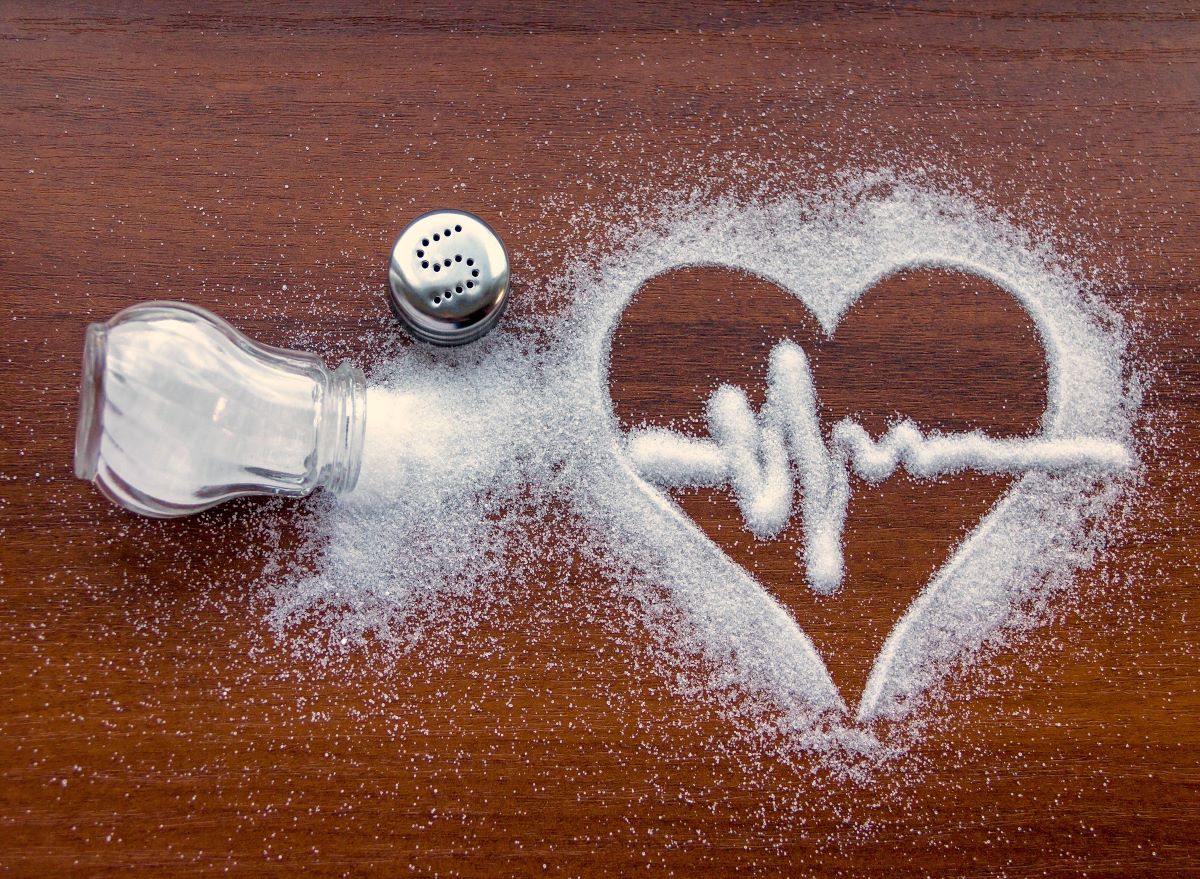Incredible Effects of Reducing Your Sodium Intake, Says New Study

Sodium, in moderation, is an important part of your diet. It is an electrolyte, making it crucial for maintaining homeostasis in the body, allowing many bodily functions to operate smoothly and steadily. It also helps balance fluids and minerals as well as helps control muscle movements. If we don't get enough sodium, we crave it. Sodium also contains no calories, which is why it can seem like a good addition to your foods, adding extra flavor to your meals.
However, too much sodium can lead to negative effects. One of those effects is potentially increasing your risk of heart disease. If you are at risk of or have heart disease it's important to watch how much sodium you consume. According to a new study published in The Lancet Journal, reducing your sodium intake can help prevent fluid overload and unfavorable outcomes for patients with heart failure.
In the study, researchers took information from an international, open-label, randomized, controlled trial, also known as SODIUM-HF. The trial enrolled patients who were 18 years old or above, located at 26 sites in six countries. These eligible patients had chronic heart failure and received an optimally tolerated guideline-directed medical treatment—a most-favorable dose of a drug or treatment that does not cause unacceptable side effects. The patients were randomly assigned to either usual treatment according to local guidelines, or a low sodium diet of fewer than 100 millimoles (mmol) per day.
The researchers then designed the Study of Dietary Intervention to test whether or not a reduction in dietary sodium reduces the incidence of future clinical events. They assigned 806 patients to a low sodium diet between March 24, 2014, and Dec 9, 2020. After the trial, they determined that cardiovascular-related hospitalization occurred 2% less in patients in the low sodium diet versus the patients in the usual care group.

According to the Cleveland Clinic, limiting sodium in your diet helps minimize the amount of extra fluid around your heart, lungs, and in your legs. If you have extra fluid in your body, it causes your heart to work harder. This will potentially increase your blood pressure.
How can I limit my sodium intake?
In order to help reduce your sodium intake, the Cleveland Clinic suggests trying these methods which can help manage and/or possibly treat your heart failure:
- Eat high-fiber foods that will help you maintain or reach a healthy body weight.
- Use fresh ingredients that contain little or no salt added.
- If you don't have fresh vegetables, use frozen or canned ones that contain little salt or rinse the vegetables before cooking them. The same goes for fruit.
- Swap out and/or remove certain ingredients that are high in sodium in your favorite recipes.
- Avoid nonperishable and easy-to-stock foods that have a high shelf life.
- Check the Nutrition label and look for foods that contain 600 milligrams or less of sodium.
- Avoid canned, cured, or smoked meats and items like deli meats.
How do I know if I'm experiencing heart failure?
Heart failure symptoms include shortness of breath, fatigue, or swelling of the feet, ankles, legs, abdomen, or neck veins. Risks of heart failure include leading to coronary artery disease (CAD), which is the most common type of heart disease, and heart attacks. Other problems include diabetes, high blood pressure, obesity, and valvular heart disease.
If you're experiencing any of these problems, it may be time to cut down on sodium intake, as well as consult your doctor. For more on sodium, take a look at What Happens to Your Body When You Eat Too Much Salt.









